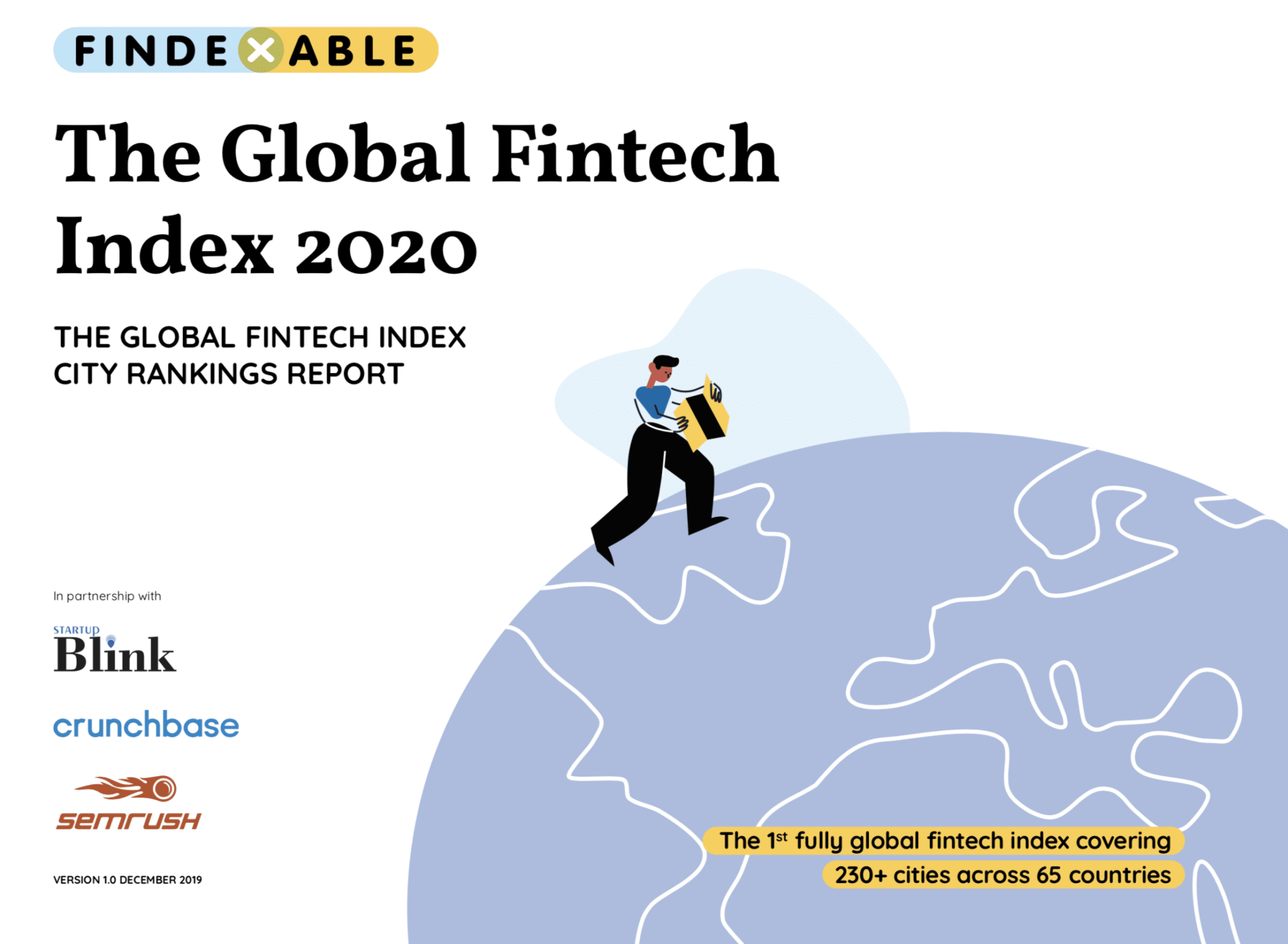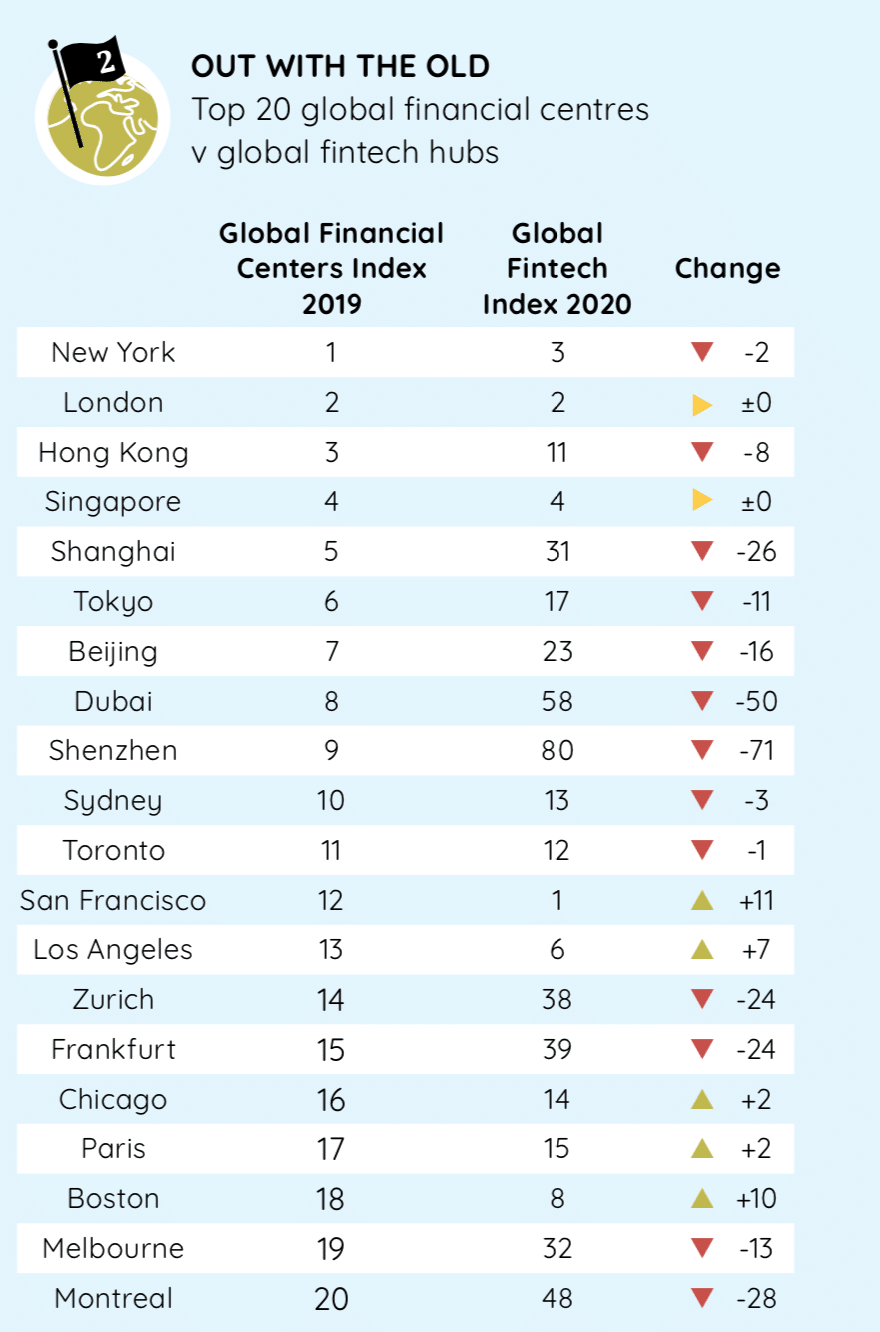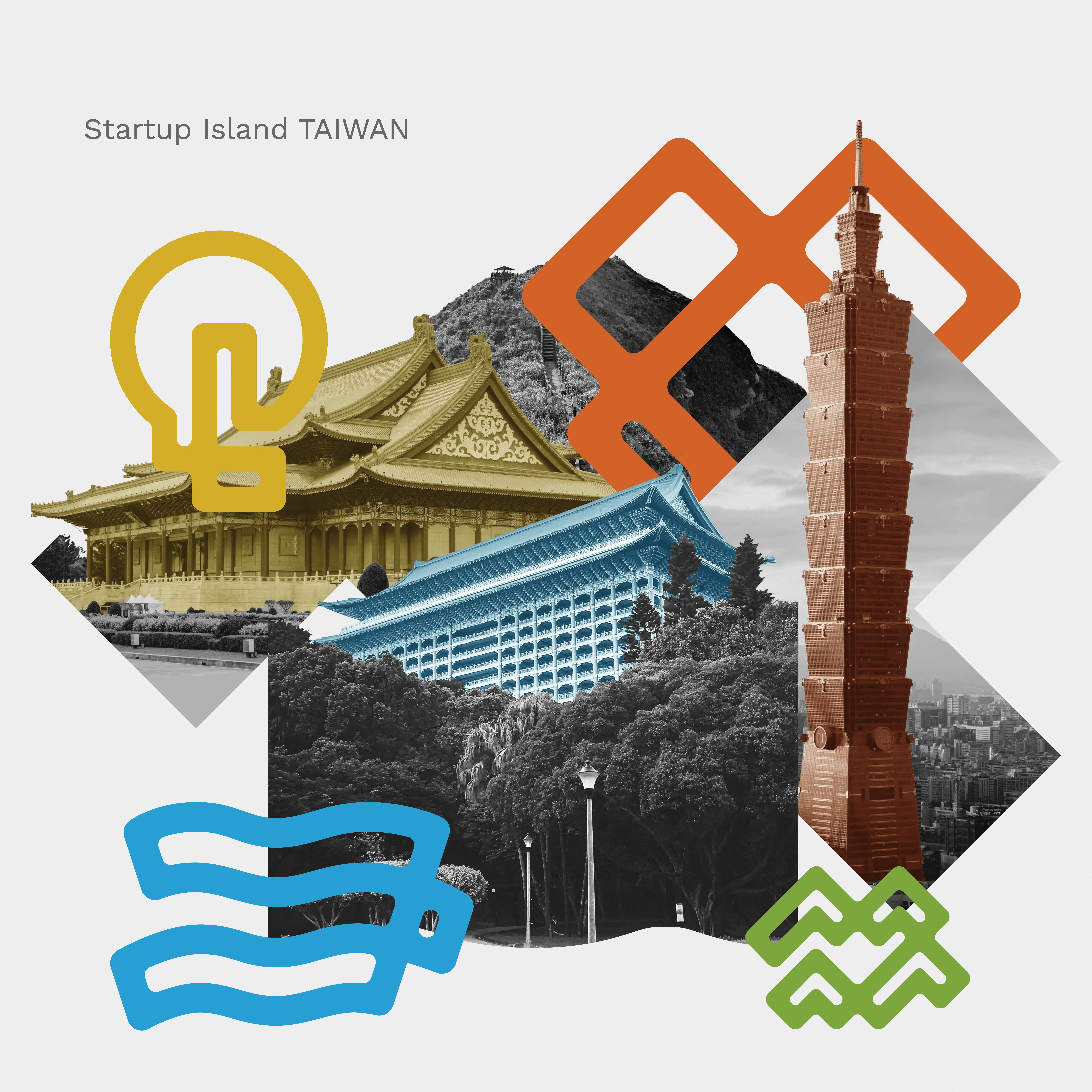Findexable launched the Global Fintech Index City Rankings 2020 Report, the first global, real-time, objective ranking of all cities with a fintech cluster. The report, which evaluates 230+ cities and 65 countries, is designed to highlight opportunities and drive transparency across the ecosystem. The San Francisco Bay Area, London, New York, Singapore City, and Sao Paulo round out the top 5.

This project involved a consortium of global partners including government and development agencies, accelerators, our technology partner StartupBlink, and data partners Crunchbase and SEMrush. The mission is to help financial institutions, governments, and investors understand how innovation is evolving and what it takes to build a thriving fintech ecosystem.

The algorithm analyzes tens of thousands of data points and is powered by our global partners including Crunchbase and SEMrush. We also analyzed data gathered from more than 50,000 members throughout the Global StartupBlink community. Specifically for Crunchbase, the partnership allowed us to locate hundreds of unicorns around the world and include them as a critical part of the algorithm. Unicorns are vital success stories that increase money flow to the local startup ecosystem. Furthermore, they also encourage the local population to join the startup revolution.
Methodology
For the purpose of the Indexalgorithm, fintech is any business that applies a technologically enabled innovation specifically geared for the provision or distribution of financial services.
The country and city rankings are calculated from a total score comprised of a combination of three metrics:
- Quantity – Size of fintech ecosystem and supporting structures – number of fintechs, fintech hubs, co-working spaces, accelerators, global influencers and population (countries only)
- Quality – Impact/performance – size and growth of fintechs (e.g., number of unicorns), investment, events, value generation, international collaboration, website ranking
- Environment – Ease of doing business, critical mass, regulatory environment – regulatory interventions to improve competitive environment, incentives for start-ups, internet censorship, payment portals, fintech courses
The beginning of a new chapter for the global economy
The findings from the Global Fintech City Rankings 2020 included here are proof of how much, and how fast, old-world economies are integrating with their counterparts in emerging regions.
In short, two clear indicators from the report:
1. A de-coupling between financial strength and the commercial domination of traditional financial centres. Cities which traditionally top the list of leading financial centres such as Frankfurt, Shanghai, and Zurich have been replaced on the list of top 20 centres for fintech by cities including Sao Paulo, Bangalore, Mumbai, and New Delhi. See the chart below, indicating the comparison of global financial centre status and global fintech status.

2. Fintech centre doesn’t equal Startup centre. One of the most interesting outcomes from the launch of the Global Fintech Index City Rankings 2020 is the breaking of an assumed link between a city’s status as a start-up city and its position as a global fintech hub. As this year’s rankings show, a city’s start-up status is only a reflection of the strength of its fintech community.
The terms fintech and start-up are not interchangeable. While established global start-up centres like London, New York, and San Francisco all retain or improve their positions at the top of the rankings, others do less well. Among the top 40 fintech hubs tracked by the index, nearly half are in a lower position as a fintech hub compared to their ranking in global start-up indices.
This table below shows the comparison between fintech hub and start-up city rankings.

Building a successful fintech hub
Among the many (welcome) surprises from the launch of the Global Fintech Index City Rankings 2020 is the appearance of a number of unexpected cities at the very top of the list, displacing some of the more traditional, mainly Western, financial centres. Three Indian cities, three cities in Latin American (and Vilnius) join the ranks of the top 40 fintech hubs globally. Of the top 100 hubs worldwide, over a quarter are in emerging countries. This is a sign of the ongoing global shift of technology, talent, and innovation, and a useful indicator of the world’s emerging centres when it comes to understanding where to focus innovation or venture investments.
Putting Mexico City (population: 21 million, nearly eight times the size of Lithuania) in the same list as Vilnius might seem a strange comparison. But there’s good reason. Both countries have spent considerable effort and investment upgrading local regulations and creating an environment to support the growth of fintech companies and to attract investment into local firms.
All the world’s a stage so while there might not be a ‘secret sauce’ that will build the next fintech hub overnight, the success of some cities over others in the Index provides a useful indicator of what success looks like. And what it takes if you’re serious about attracting fintech entrepreneurs.
Download the Global Fintech Index City Rankings 2020for more information.
Author:
Simon Hardie, CEO, Findexable
Email: simon@findexable.com
.svg)







